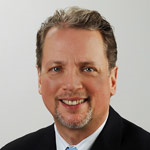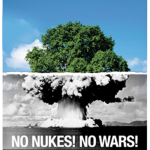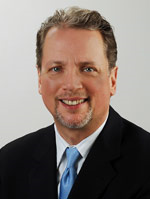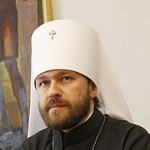
Deprecated: trim(): Passing null to parameter #1 ($string) of type string is deprecated in /home/aoiusa/public_html/wp-content/plugins/sexybookmarks/public.php on line 388
Deprecated: trim(): Passing null to parameter #1 ($string) of type string is deprecated in /home/aoiusa/public_html/wp-content/plugins/sexybookmarks/public.php on line 394
Deprecated: trim(): Passing null to parameter #1 ($string) of type string is deprecated in /home/aoiusa/public_html/wp-content/plugins/sexybookmarks/public.php on line 400
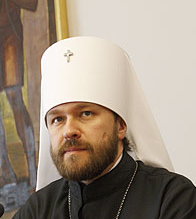 Over at the Acton Institute blog, John Couretas writes about his recent interview with Russian Orthodox Metropolitan Hilarion of Volokolamsk, chairman of the Moscow Patriarchate’s Department for External Church Relations, about increasing Christian persecution around the world. One focus was the mid-east where the Western “Arab Spring” policy has in fact unleashed a torrent of persecution against Christians. Iraq’s Christian population had to leave after the American invasion in 2003. Today the same is happening in Syria, especially as we arm insurgents who we are told are freedom fighters but in fact are Islamic radicals.
Over at the Acton Institute blog, John Couretas writes about his recent interview with Russian Orthodox Metropolitan Hilarion of Volokolamsk, chairman of the Moscow Patriarchate’s Department for External Church Relations, about increasing Christian persecution around the world. One focus was the mid-east where the Western “Arab Spring” policy has in fact unleashed a torrent of persecution against Christians. Iraq’s Christian population had to leave after the American invasion in 2003. Today the same is happening in Syria, especially as we arm insurgents who we are told are freedom fighters but in fact are Islamic radicals.
Met. Hilarion is careful in his criticism…
It is possible already now to speak of an external military interference in [Syria] as thousands of extremist militants in the guise of opposition forces have unleashed a civil war in the country,” Hilarion said in the Moscow lecture. “Extremist groups, the so-called jamaates consisting of militant Wahhabites armed and trained at the expense of foreign powers are purposefully killing Christians.
…but is is clear that “external military interference” applies to the United States and other Western powers. When America arms insurgents (the policy of the Obama administration), we are arming Islamic radicals who will displace the Christian population if they succeed in overthrowing Bashar al-Assad, the President of Syria.
What about Assad, the favorite whipping boy of American liberals and neo-conservatives? Couretas writes:
Despite having few illusions about the nature of Assad’s autocratic rule, many Christians feared that the Islamist groups, involved in what the West initially viewed as another “Arab Spring” uprising, would eventually turn on them. Indeed this is what has happened.
The illusion informing American foreign policy is that democratic principles can be imposed on other countries by force. It can’t. First of all, representative government is a cultural impossibility in an Islamic dominated country. Secondly, America should not be in the business of “nation building.” It distorts our self-understanding and responsibility in the world. There are some places in the world were a dictatorship is the best type of government a nation can produce. America has made matters worse in Syria by removing the barriers that held the persecutors of Christians in check.
A portion of the article is reproduced below. For the complete posting go to the Acton Institute Blog.

Source: Acton Institute Blog | John Couretas
The Russian Orthodox Church has been among the most active witnesses against Christian persecution around the world, particularly in the Balkans, North Africa and the Middle East. In November 2011, Kirill, the Patriarch of Moscow and All Russia, visited Syria and Lebanon. In a meeting with Syrian President Bashar al-Assad, Kirill said that he shared a concern with Assad about the “spread of religious radicalism that threatens the integrity of the Arab world.”
That sentiment has been expressed widely in Christian communities in Syria — some of them dating to apostolic times — as civil war has progressively taken a heavy toll. Now almost two years on, as many as 30,000 people may have perished. Despite having few illusions about the nature of Assad’s autocratic rule, many Christians feared that the Islamist groups, involved in what the West initially viewed as another “Arab Spring” uprising, would eventually turn on them. Indeed this is what has happened. Entire Christian villages have been depopulated, churches desecrated, and many brutal killings have taken place at the hands of the “Arab Spring” insurgents. Most recently, Fr. Fadi Haddad, an Orthodox priest, was found murdered with brutal marks of torture on his remains. Car bomb attacks are now being waged against Christian neighborhoods. (See these backgrounders on the Syrian crisis from the Congressional Research Service and the Council on Foreign Relations).
In February, Hilarion delivered a lecture in Moscow titled “An Era of New Martyrdom. Discrimination of Christians in Various Parts of the World” in which he cited the work of groups such as Barnabas Fund and International Christian Concern. In his talk, he detailed the dire situation of the Coptic Christians in Egypt and in Syria, and various other nations. He noted that Muslims and Christians of various confessions – Orthodox, Roman and Syro Catholics, Maronites and Armenians – co-existed in Syria through centuries and that, until recently, “Syria was a model of wellbeing as far as interreligious co-existence was concerned.” What’s more, Syria has accepted 2 million refugees from Iraq, with several thousand of them being Christians, as they fled persecution in their homeland.
[…]
For the complete posting go to the Acton Institute Blog.


